Definition List For Examples of education experience
When it comes to examples of education experience, there are several aspects that can be highlighted. In this section, I’ll provide you with a definition list of important terms and concepts related to education experience. This will help you understand and recognize different educational experiences that are valuable for young learners.
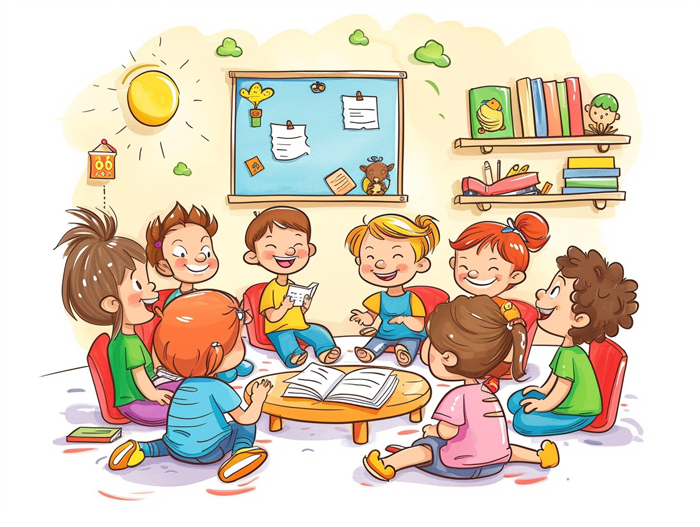
Differentiated Instruction
Differentiated instruction is an approach used by teachers to tailor their instruction to the diverse needs of their students. It involves adjusting the content, process, and assessment to match the unique learning styles, abilities, and interests of each individual student. With differentiated instruction, educators can ensure that every student receives the support they need to succeed.
Project-Based Learning
Project-based learning (PBL) is a method of teaching that focuses on engaging students in real-world, meaningful projects. Instead of traditional teacher-led instruction, PBL encourages students to explore topics of interest, develop skills, and apply their knowledge to solve authentic problems. Through project-based learning, students can enhance their critical thinking, collaboration, and creativity skills.
Cooperative Learning
Cooperative learning is an instructional strategy that involves students working together in small groups to achieve a common goal. This approach promotes active learning, interaction, and collaboration among students. By working collaboratively, students can develop their communication skills, build positive relationships, and learn from their peers.
Experiential Learning
Experiential learning is a hands-on approach to education that involves learning through direct experiences. It allows students to engage in real-world activities, experiments, and simulations to deepen their understanding of a subject. Through experiential learning, students can make connections between theory and practice, develop problem-solving skills, and gain practical knowledge.
Blended Learning
Blended learning is a hybrid instructional model that combines traditional classroom teaching with online learning. It integrates face-to-face instruction with technology and digital resources. Blended learning offers the flexibility of online learning while still providing the benefits of in-person interaction and guidance from teachers.
Flipped Classroom
The flipped classroom model flips the traditional approach to learning. In a flipped classroom, students are introduced to the content outside of class through videos or online resources. Classroom time is then dedicated to activities, discussions, and applying the knowledge gained. This model allows for more personalized instruction, active learning, and student engagement.
Importance of Education Experience
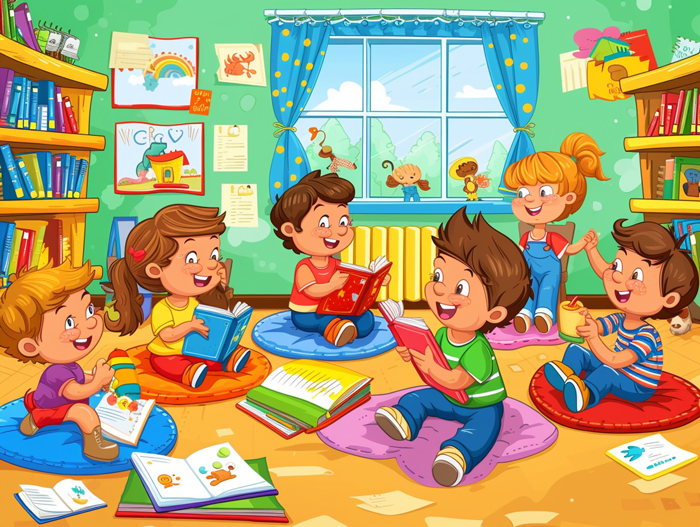
Enhancing Learning Opportunities
In education, experience plays a crucial role in enhancing learning opportunities for students. By providing hands-on and interactive activities, students are actively engaged in the learning process, which leads to improved comprehension and retention. Studies have shown that learners who have access to experiential learning are more likely to develop a deeper understanding of the subject matter.
Incorporating real-world experiences into the educational curriculum allows students to apply what they have learned in practical ways. For example, project-based learning allows students to work on meaningful projects that require problem-solving, critical thinking, and collaboration skills. This approach ensures that students are actively involved in their own learning, making it more impactful and memorable.
By offering a variety of learning experiences, such as cooperative learning, students have the opportunity to learn from their peers and gain different perspectives. This not only promotes social interaction but also encourages teamwork and communication skills. Research indicates that students who engage in cooperative learning have higher academic achievement and improved self-esteem.
Building a Strong Foundation
Education experiences are essential for building a strong foundation for students. Through differentiated instruction, educators can tailor their teaching methods and materials to meet the diverse needs of their students. This approach ensures that every student receives the support and resources they need to succeed, ultimately leading to improved academic outcomes.
Experiences like blended learning and the flipped classroom model combine traditional teaching methods with technology, providing students with a well-rounded educational experience. By incorporating online resources and interactive tools, students can access educational materials anytime, anywhere. This flexibility allows for individualized learning and can help students develop self-directed learning skills.
Developing Critical Thinking Skills
Education experiences play a crucial role in developing critical thinking skills in students. By engaging in problem-solving activities, students are encouraged to think critically, analyze information, and make informed decisions. Experiential learning is particularly effective in cultivating these skills as it requires students to apply their knowledge to real-life situations.
Through education experiences, students are exposed to a wide range of perspectives and ideas, promoting creativity and innovation. By encouraging students to think outside the box and explore different possibilities, education experiences foster a growth mindset and prepare students for the challenges of the future.
Education experiences are vital in enhancing learning opportunities, building a strong foundation, and developing critical thinking skills in students. By providing hands-on and interactive activities, educators can create engaging and meaningful learning experiences that empower students to become lifelong learners.
Benefits of Education Experience
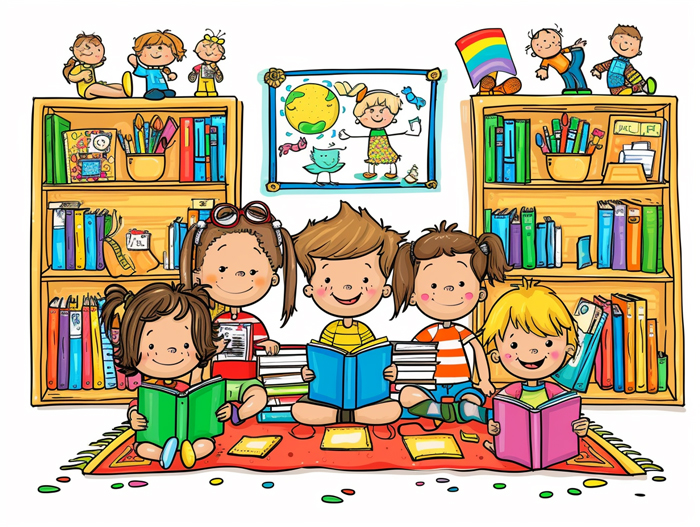
Improved Career Opportunities
As an educator, I know that a solid education experience can significantly impact a student’s future career prospects. Here are a few ways in which education experiences can enhance students’ career opportunities:
- Broadened Skill Set: By engaging in various educational activities, students develop a wide range of skills that are essential in today’s job market. These skills include problem-solving, critical thinking, communication, creativity, and collaboration.
- Increased Knowledge Base: Education experiences expose students to a wealth of information and knowledge across various subjects. This knowledge acts as a foundation for further learning and helps students make informed choices about their future career paths.
- Hands-on Learning: Education experiences often involve practical, hands-on activities that simulate real-world scenarios. This allows students to apply their knowledge in practical ways and develop relevant skills that employers value.
- Networking Opportunities: Education experiences provide students with opportunities to connect with teachers, mentors, and fellow students who can become valuable contacts in their future careers. Networking can open doors to job opportunities, internships, and other career-related connections.
Personal Growth and Self-Development
Apart from career benefits, education experiences also play a significant role in personal growth and self-development. Here’s how:
- Confidence Building: Through education experiences, students gain confidence in their abilities and knowledge. This confidence spills over into other areas of their lives, empowering them to take on challenges and pursue their passions.
- Character Development: Education experiences promote character development by instilling values such as perseverance, resilience, empathy, and integrity. These qualities are essential for personal and professional success.
- Cultural Awareness: Education experiences expose students to diverse perspectives, cultures, and backgrounds, fostering open-mindedness and empathy towards others. This cultural awareness is crucial in a globalized world where collaboration and understanding are paramount.
- Self-Discovery: Education experiences provide opportunities for self-reflection and self-discovery. Students can explore their interests, strengths, and weaknesses, leading to a better understanding of themselves and their unique talents.
Enhanced Problem-Solving Abilities
One of the most valuable skills that education experiences develop in students is their problem-solving abilities. Here’s how education experiences contribute to enhanced problem-solving skills:
- Critical Thinking: Education experiences encourage critical thinking by prompting students to analyze information, evaluate different perspectives, and draw well-reasoned conclusions. This analytical mindset helps students approach problems with a logical and systematic approach.
- Creativity and Innovation: Education experiences foster creativity and innovation by encouraging students to think outside the box, explore new ideas, and find unique solutions to problems. These skills are highly valued in today’s rapidly changing world.
- Collaborative Problem-Solving: Education experiences often involve collaborative activities that require students to work together to solve problems. This cultivates teamwork, effective communication, and the ability to leverage diverse strengths to reach a common goal.
- Real-World Applications: Education experiences provide opportunities for students to apply their problem-solving skills to real-world situations. This practical application helps students understand the relevance of their education and prepares them for the challenges they may face in their future careers.
Remember, education experiences are not just about acquiring knowledge but also about nurturing skills, fostering personal growth, and preparing students for a successful future. The benefits extend far beyond the classroom, shaping students into well-rounded individuals ready to tackle life’s challenges.
Examples of Education Experience
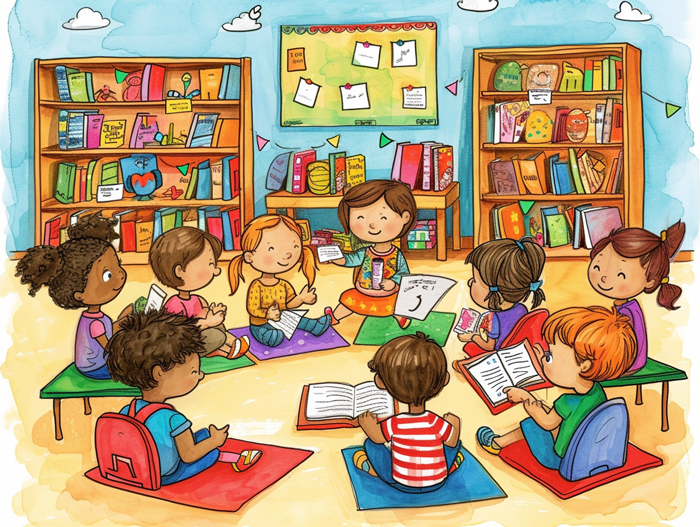
Classroom Learning
In the classroom, students gain valuable education experiences through interactive lessons and group activities. Here are some examples:
- Hands-on experiments: We conduct science experiments to explore concepts and understand how things work. For example, we might mix different substances to create a chemical reaction or observe the life cycle of a butterfly.
- Collaborative projects: We work together on projects that encourage teamwork and problem-solving skills. This could involve creating a presentation, building a model, or putting on a play.
- Field trips: Visiting museums, zoos, or historical sites helps us apply what we learn in class to the real world. We get a chance to see and experience things firsthand, making the learning process more engaging.
Internships and Work Experience
Internships and work experiences provide students with a taste of the professional world and help them develop important skills. Check out these examples:
- Job shadowing: Students spend a day with professionals in various fields to observe their work and gain insights into different careers. This allows us to see how classroom knowledge translates into real-life applications.
- Volunteer work: Engaging in community service allows us to contribute to society while learning valuable skills. For instance, we might volunteer at a local animal shelter, helping with animal care and learning about responsibility and empathy.
- Part-time jobs: Working part-time jobs, such as in retail or food service, teaches us about time management, customer service, and the value of hard work. We learn to balance our responsibilities and develop important life skills.
Extracurricular Activities and Clubs
Participating in extracurricular activities and clubs expands our education experiences beyond the classroom. Consider these examples:
- Sports teams: Joining a sports team helps us develop teamwork, discipline, and perseverance. We learn to set goals, work together towards a common objective, and handle both victory and defeat with grace.
- Art and music clubs: Engaging in creative pursuits like painting, drawing, or playing an instrument nurtures our artistic skills and allows us to express ourselves. It fosters creativity, imagination, and self-confidence.
- Debate clubs: Participating in debate clubs hones our public speaking and critical thinking abilities. We learn to research topics, articulate our thoughts, and respect differing opinions.
Education experiences go beyond the traditional classroom setting. Whether it’s through hands-on learning, internships, or extracurricular activities, these experiences enhance our education journey and prepare us for the future.
Challenges in Education Experience
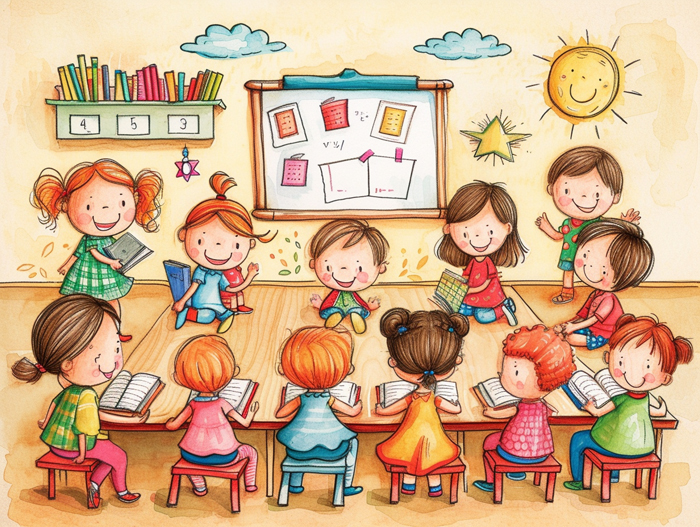
Lack of Access to Quality Education
Access to quality education is a pressing issue that many students face. It prevents them from receiving the education they deserve and hinders their learning opportunities. As an educator, I have witnessed the impact it has on students and their ability to reach their full potential.
Unfortunately, not all students have equal access to quality education. Factors such as geographical location, socioeconomic status, and lack of resources contribute to this inequality. Here are some key points regarding the lack of access to quality education:
- Geographical barriers: Students in rural areas may have limited access to well-equipped schools and qualified teachers, making it challenging for them to receive a quality education.
- Socioeconomic disparities: Financial constraints can prevent students from attending schools that offer comprehensive educational programs and resources.
- Resource limitations: In many schools, there is a lack of sufficient teaching materials, technology, and extracurricular opportunities, which can hinder students’ learning experiences.
Financial Constraints
Financial constraints serve as a significant barrier for many students in pursuing education experiences. The rising cost of education, including tuition fees, textbooks, and supplies, can make it difficult for students to access the educational opportunities they desire. As an educator, I have seen firsthand the challenges that students face due to financial constraints.
Here are some important points to consider regarding financial constraints in education:
- Tuition fees: The high cost of tuition fees for colleges and universities can deter many students from pursuing higher education.
- Textbooks and supplies: The expenses associated with textbooks and supplies can burden students, especially those from low-income backgrounds.
- Extracurricular activities: Participation in extracurricular activities often requires additional fees, making it inaccessible for students who cannot afford them.
Overemphasis on Grades
In our education system, there is often an overemphasis on grades, which can create challenges for students’ education experiences. The pressure to achieve high grades can sometimes overshadow the true purpose of learning and hinder students’ overall growth and development.
Here are some key points about the overemphasis on grades:
- Narrow focus: An excessive focus on grades can lead to a narrow focus on test scores rather than fostering a holistic approach to education.
- Limited creativity: Students’ creativity and critical thinking skills may be stifled when the primary goal becomes achieving high grades.
- Increased stress: The pressure to constantly perform well academically can lead to increased stress levels among students, impacting their mental health and overall well-being.
It is essential to recognize these challenges in education experience so that we can work towards finding solutions to address them. By ensuring equal access to quality education, easing financial constraints, and fostering a well-rounded educational environment, we can create a more inclusive and beneficial education system for all students.
Conclusion
Education experiences play a crucial role in shaping students’ learning journey and preparing them for a successful future. Through hands-on and interactive activities, such as project-based learning and cooperative learning, students actively engage in their education and develop essential collaboration skills. Differentiated instruction, blended learning, and the flipped classroom model cater to the diverse needs of students, fostering self-directed learning and enhancing their educational experience.
Education experiences extend beyond the confines of the traditional classroom, encompassing internships, work experience, and participation in extracurricular activities and clubs. These opportunities provide real-world exposure, enhance problem-solving abilities, and contribute to personal growth and self-development.
Despite the numerous benefits, challenges such as limited access to quality education and financial constraints hinder students’ learning opportunities. Additionally, an overemphasis on grades can limit the holistic development of students. It is crucial to address these challenges and create a more inclusive and beneficial education system that ensures equal opportunities for all students.
Education experiences are invaluable in fostering critical thinking, enhancing career prospects, and nurturing personal growth. By providing students with diverse learning opportunities, we can empower them to thrive in an ever-changing world.

